|
Professor Anvari Taught manufacturing and industrial systems engineering courses at the University of Michigan for five years where he received his three engineering degrees, and as an adjunct professor he teaches project and cost management at local universities in the Washington DC area.� In his early career he worked at General Motors as a production engineer and later as an operations research and systems analyst at the cost and economic analysis center in Washington DC. Mort is currently the Director of Programs and Strategy at ASA (FM&C) and the Lean Six Sigma (LSS) deployment Director where he oversees process improvement initiatives, economic studies validation, cost benefit analysis, and risk and uncertainty analysis in support of major defense programs. Mort is Defense Acquisition University Level III Certified in Business Financial Management (BFM), and Business Cost Estimating (BCE). Mort has� received several professional awards that includes the 2006 DoD modeling and simulation award. In his public lectures, Mort stimulates cost culture debates among government and industry leaders and managers. Professor Anvari has repeatedly appeared on live television programs analyzing the political economy of the Middle East. |

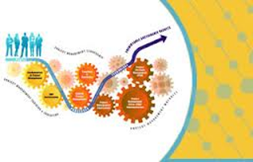









|
Management science
One can characterize the field of management science as "the business use of operations research".�� However, in modern times the term management science may also be used to refer to the separate fields of organizational studies or corporate strategy.� Like operational research itself, management science (MS) is an interdisciplinary branch of applied mathematics devoted to optimal decision planning, with strong links with economics, business, engineering, and other sciences.� It uses various scientific research-based principles, strategies, and analytical methods including mathematical modeling, statistics and numerical algorithms to improve an organization's ability to enact rational and meaningful management decisions by arriving at optimal or near optimal solutions to complex decision problems. In short, management sciences help businesses to achieve their goals using the scientific methods of operational research.
The management scientist's mandate is to use rational, systematic, science-based techniques to inform and improve decisions of all kinds. Of course, the techniques of management science are not restricted to business applications but may be applied to military, medical, public administration, charitable groups, political groups or community groups.
Management science is concerned with developing and applying models and concepts that may prove useful in helping to illuminate management issues and solve managerial problems, as well as designing and developing new and better models of organizational excellence.
The application of these models within the corporate sector became known as management science. Some of the fields that have considerable overlap with Operations Research and Management Science include:
Applications of management science are abundant in industry as airlines, manufacturing companies, service organizations, military branches, and in government. The range of problems and issues to which management science has contributed insights and solutions is vast. It includes:
� scheduling airlines, including both planes and crew, � deciding the appropriate place to site new facilities such as a warehouse, factory or fire station, � managing the flow of water from reservoirs, � identifying possible future development paths for parts of the telecommunications industry, � establishing the information needs and appropriate systems to supply them within the health service, � identifying and understanding the strategies adopted by companies for their information systems.
Management science is also concerned with so-called �soft-operational analysis�, which concerns methods for strategic planning, strategic decision support, and Problem Structuring Methods (PSM). In dealing with these sorts of challenges mathematical modeling and simulation are not appropriate or will not suffice. Therefore, during the past 30 years, a number of non-quantified modeling methods have been developed. These include:
� stakeholder based approaches including metagame analysis and drama theory � Morphological analysis and various forms of influence diagrams � approaches using cognitive mapping � the Strategic Choice Approach � robustness analysis
Operations research is a discipline that deals with the application of advanced analytical methods to help make better decisions.� It is often considered to be a sub-field of mathematics. The terms management science and decision science are sometimes used as synonyms.
Employing techniques from other mathematical sciences, such as mathematical modeling, statistical analysis, and mathematical optimization, operations research arrives at optimal or near-optimal solutions to complex decision-making problems. Because of its emphasis on human-technology interaction and because of its focus on practical applications, operations research has overlap with other disciplines, notably industrial engineering and operations management, and draws on psychology and organization science. Operations research is often concerned with determining the maximum (of profit, performance, or yield) or minimum (of loss, risk, or cost) of some real-world objective. Originating in military efforts before World War II, its techniques have grown to concern problems in a variety of industries.
Operational research (OR) encompasses a wide range of problem-solving techniques and methods applied in the pursuit of improved decision-making and efficiency, such as simulation, mathematical optimization, queuing theory and other stochastic-process models, Markov decision processes, econometric methods, data envelopment analysis, neural networks, expert systems, decision analysis, and the analytic hierarchy process.[5] Nearly all of these techniques involve the construction of mathematical models that attempt to describe the system. Because of the computational and statistical nature of most of these fields, OR also has strong ties to computer science and analytics. Operational researchers faced with a new problem must determine which of these techniques are most appropriate given the nature of the system, the goals for improvement, and constraints on time and computing power.
The major sub disciplines in modern operational research, as identified by the journal Operations Research, are: � Computing and information technologies � Environment, energy, and natural resources � Manufacturing, service sciences, and supply chain management � Marketing Engineering � Policy modeling and public sector work � Revenue management � Transportation. |
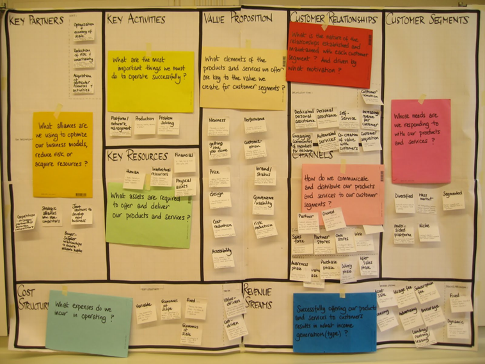
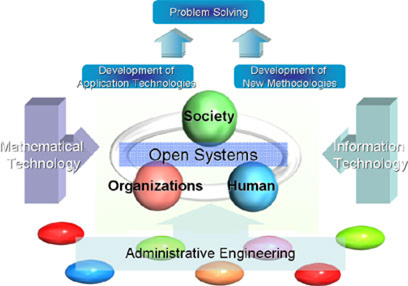
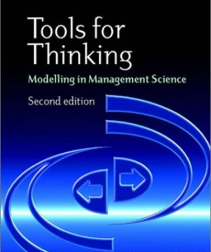
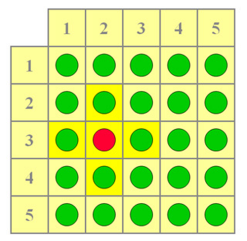



|
Mort Anvari |

|
Professor Anvari Taught manufacturing and industrial systems engineering courses at the University of Michigan for five years where he received his three engineering degrees, and as an adjunct professor he teaches project and cost management at local universities in the Washington DC area.� In his early career he worked at General Motors as a production engineer and later as an operations research and systems analyst at the cost and economic analysis center in Washington DC. Mort is currently the Director of Programs and Strategy at ASA (FM&C) and the Lean Six Sigma (LSS) deployment Director where he oversees process improvement initiatives, economic studies validation, cost benefit analysis, and risk and uncertainty analysis in support of major defense programs. Mort is Defense Acquisition University Level III Certified in Business Financial Management (BFM), and Business Cost Estimating (BCE). Mort has� received several professional awards that includes the 2006 DoD modeling and simulation award. In his public lectures, Mort stimulates cost culture debates among government and industry leaders and managers. Professor Anvari has repeatedly appeared on live television programs analyzing the political economy of the Middle East. |


|
|
Management Science Topics (scroll down for Topics contents) |
|
|
|
1 |
Introduction to Management Science |
|
|
|
2 |
Principles of Operations Management |
|
|
|
3 |
Operations Management |
|
|
|
4 |
Supply Chain Management |
|
|
|
5 |
Operations and Supply Chain Management |
|
|
|
6 |
Managerial Decision Modeling |
|
|
|
|
|
|
|
|
1 |
Introduction to Management Science |
|
|
|
1 |
|
|
|
|
2 |
|
|
|
|
3 |
|
|
|
|
4 |
|
|
|
|
5 |
|
|
|
|
6 |
|
|
|
|
7 |
|
|
|
|
8 |
|
|
|
|
9 |
|
|
|
|
10 |
|
|
|
|
11 |
|
|
|
|
12 |
|
|
|
|
13 |
|
|
|
|
14 |
|
|
|
|
15 |
|
|
|
|
16 |
|
|
|
|
2 |
Principles of Operations Management |
|
|
|
1 |
|
|
|
|
2 |
|
|
|
|
3 |
|
|
|
|
4 |
|
|
|
|
5 |
|
|
|
|
5s |
|
|
|
|
6 |
|
|
|
|
6s |
|
|
|
|
7 |
|
|
|
|
7s |
|
|
|
|
8 |
|
|
|
|
9 |
|
|
|
|
10 |
|
|
|
|
11 |
|
|
|
|
11s |
|
|
|
|
12 |
|
|
|
|
13 |
|
|
|
|
14 |
|
|
|
|
15 |
|
|
|
|
16 |
|
|
|
|
17 |
|
|
|
|
A |
|
|
|
|
B |
|
|
|
|
C |
|
|
|
|
D |
|
|
|
|
E |
|
|
|
|
F |
|
|
|
|
3 |
Operations Management |
|
|
|
1 |
|
|
|
|
2 |
|
|
|
|
3 |
|
|
|
|
4 |
|
|
|
|
5 |
|
|
|
|
6 |
|
|
|
|
7 |
|
|
|
|
8 |
|
|
|
|
a |
|
|
|
|
b |
|
|
|
|
c |
|
|
|
|
d |
|
|
|
|
4 |
Supply Chain Management |
|
|
|
1 |
|
|
|
|
2 |
|
|
|
|
3 |
|
|
|
|
4 |
6 |
Managerial Decision Modeling |
|
|
5 |
1 |
||
|
6 |
2 |
||
|
7 |
3 |
||
|
8 |
4 |
||
|
9 |
5 |
||
|
10 |
6 |
||
|
11 |
7 |
||
|
12 |
8 |
||
|
13 |
9 |
||
|
5 |
Operations and Supply Chain Management |
10 |
|
|
1 |
11 |
||
|
2 |
12 |
||
|
3 |
Process Choice and Layout Decisions in Manufacturing and Services |
7 |
Take a Test Excel |
|
4 |
1 |
||
|
5 |
2 |
||
|
6 |
3 |
||
|
6s |
4 |
||
|
7 |
5 |
||
|
8 |
6 |
||
|
9 |
7 |
||
|
10 |
8 |
||
|
11 |
9 |
||
|
12 |
10 |
||
|
12s |
11 |
||
|
13 |
12 |
||
|
14 |
13 |
||
|
15 |
14 |